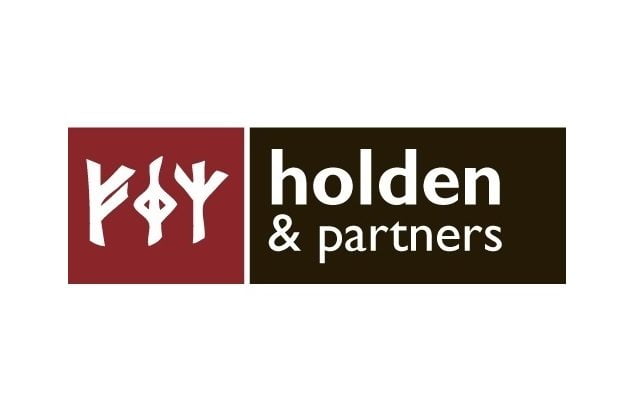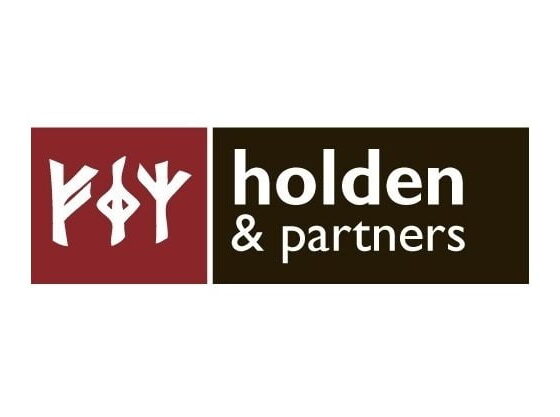

Economy
Holden & Partners (London) on National Ethical Investment Week 2013
With just over two weeks until this year’s National Ethical Investment Week (October 13-19) kicks off, we’re catching up with financial advisers who specialise in ethical investment.
Given the news that Blue & Green Tomorrow has acquired ethical investment website Worldwise Investor, we thought it fitting to get the views of Mark Hoskin, a partner at Holden & Partners which previously owned Worldwise.
What are you hoping for at this year’s National Ethical Investment Week?
That all investors consider putting 10% of their portfolio into sustainable funds as a start. This makes sense to me from an investment perspective because it reflects how governments and businesses are adapting and changing their processes to be more sustainable and will feed through into corporate profits in the future. Why not try and invest in business leaders and innovators concerned about keeping profitability up by not wasting society’s valuable resources?
To achieve this, I am hoping that the mainstream media pick up on the fact that sustainable funds have performed in line with mainstream markets and they don’t simply go for the cheap shots with headlines such as “Ethical funds underperform”, because they are attention grabbing and they find one or two funds which underperform.
In the past we have seen many advisers (who don’t really advise in this space) happy to make such statements for cheap publicity. Funds of all types underperform certain benchmark,s irrespective of any sustainable or ethical overlays on a fund, whilst other funds outperform.
In the analysis we have done, we do not find that it is the ethical or sustainable overlay which is the biggest factor in returns, but rather the fund managers’ decisions within those parameters. Based on historical data and our understanding of how the future might pan out, we are convinced that investing on a longer term basis with values in mind will not disadvantage investors and indeed may benefit them.
Our wealthiest clients tend to want their values to come through in the investment process and we hope that this message is considered and absorbed by other financial advisers who have been historically a block to sensible discussion on how investments can relate to values. In this way, a greater number of people can be helped to achieve their financial objectives with sustainability in mind.
What did you get out of National Ethical Investment Week last year?
I think Holden & Partners may have got a few quotes in the national press and I went to present to a church group, but nothing concrete from a business perspective at the time. However, I think the week is more about reaching out to people to try and get them to rethink what they are doing with their money, because it is what they do with their money which drives society.
We buy eco-products in stores, insulate our homes, buy renewable energy and think about food miles and local produce, but when it comes to investments it is as if our rational minds go out of the window: “Let’s just buy those oil companies because they did well for our grandfathers!” This week should be about making people think about the logic of that type of approach.
How has ethical/responsible/sustainable/green investment changed in the past 12 months? What trends have you noticed?
The financial crisis really sent the sustainable and ethical funds market into defensive mode, certainly from a retail investor perspective. We saw the old big names in the field like Henderson fire their whole investment team, Aviva offload their sustainable team to Alliance Trust and F&C disappear into their internal restructuring and concerns about Friends Life.
It seems the same management consultants were going round to the same investment houses suggesting the same strategies, which broadly were to focus on fixed interest and property.
All the talk in the markets has been of investing defensively. As usual it has been a case of don’t follow the sentiment, because sustainable and ethical funds have tended to outperform, as the US continues to pump billions of new dollars into the market, with defensive approaches suffering.
This may be why Henderson has undergone a bit of an internal rethink on what to do going forward with its ethical funds. It might also be why First State, despite having to soft close its Sustainable Asia Pacific Fund and Sustainable Global Emerging Markets Fund to new money due to too much demand, is starting to engage more with the independent financial adviser (IFA) community about sustainability than it did in the past, prompted in part by their chief executive, and why UBS is also considering launching its sustainability fund as an OEIC in the UK.
I sense change in the market with new players prepared to go out an engage about sustainability. Royal London has just completed on their purchase of the Co-op fund management business and we wait to see how it will engage with the retail investor, while Alliance Trust is undertaking a huge roadshow to engage with IFAs.
So it is very much the case of new names and leaders taking the message to IFAs and investors with the old ‘ethical’ funds of the 1980s and 1990s in the background. And there is a feeling amongst the investment houses I talk to that while the wealth in the UK tends to be with the 60-year-olds and over today, the younger generation in their 30s and 40s get sustainability and it will be a big part of their future decision making process, so it is all to play for.
Tell us something interesting about you or your firm that investors/clients might not already know.
The combined years of experience of our seven partners/financial advisers is 140 years. One hundred and forty years ago in 1873, Rio Tinto was established in Spain and on September 18 of that year, the New York stock market crashed, when bank reserves reportedly fell from $50m to $17m, which caused a depression until 1879. Sound familiar?!
Why should an investor seek ethical/sustainable/responsible financial advice from you?
We are honest, easy to get on with, trustworthy and know what we are talking about.
We look after approximately 300 clients looking for sustainable investments already with assets under management between £100,000 and £15m. We have been advising value-led investment clients for many years, prior to establishing Holden & Partners in 2003. We are considered to be experts in this field within the adviser community and have written Guides to Ethical and Climate Change Investment, prior to starting www.worldwiseinvestor.com, which we recently sold to Blue & Green Communications Ltd and which will become the investment pages of Blue & Green Tomorrow.
Roughly 30% of our assets under management (circa £120m) are in ethical or sustainable funds, with about 40% of our 700 or so clients being specifically interested in the sustainable and ethical investment funds. We are a firm of chartered financial planners and as such are practical and not ideological about values.
A main part of our role is to help clients steer a sensible course, taking their values into account as well as tax considerations, and ensuring they meet their financial objectives and expectations. So please feel free to get in touch and give me, or one of our advisers a call. We are always happy to help.
www.holden-partners.co.uk / www.neiw.org
Further reading:
The Guide to Ethical Funds 2013


 Environment11 months ago
Environment11 months agoAre Polymer Banknotes: an Eco-Friendly Trend or a Groundswell?

 Features10 months ago
Features10 months agoEco-Friendly Cryptocurrencies: Sustainable Investment Choices

 Features11 months ago
Features11 months agoEco-Friendly Crypto Traders Must Find the Right Exchange

 Energy10 months ago
Energy10 months agoThe Growing Role of Solar Panels in Ireland’s Energy Future



























